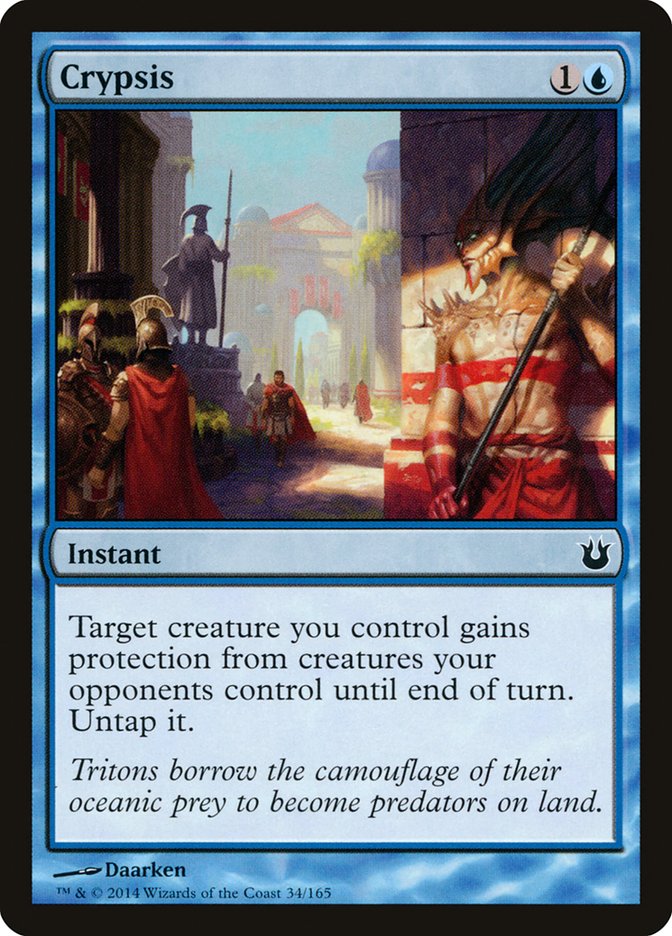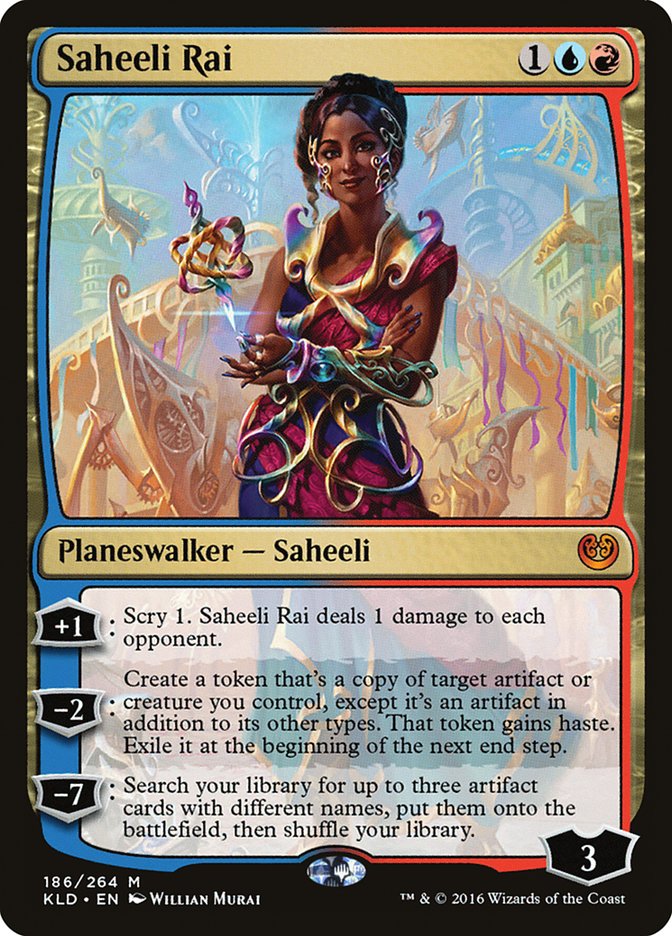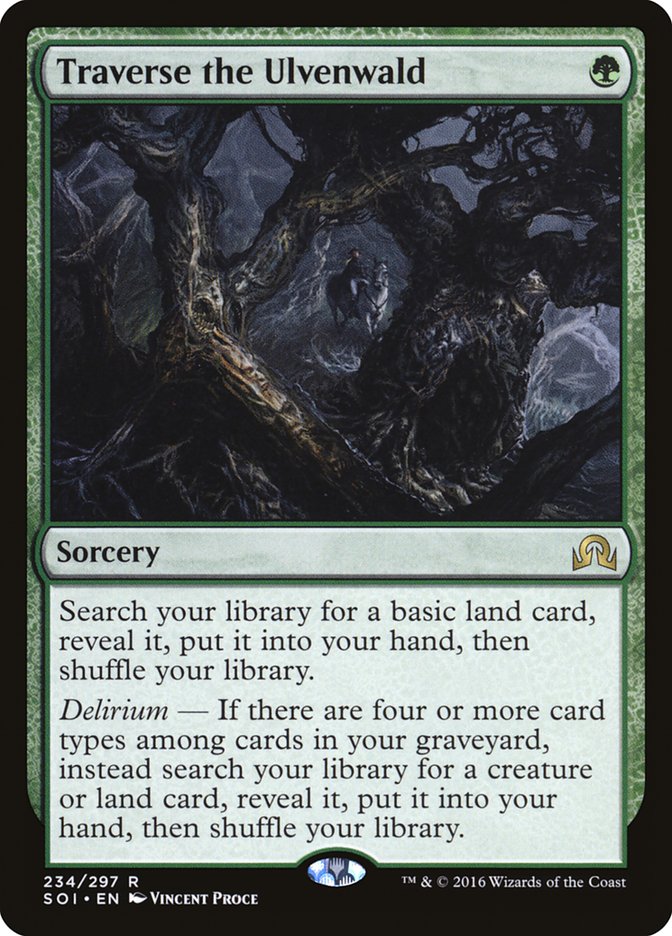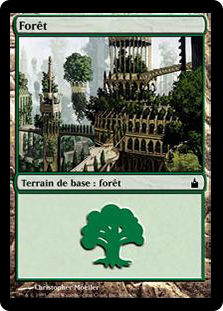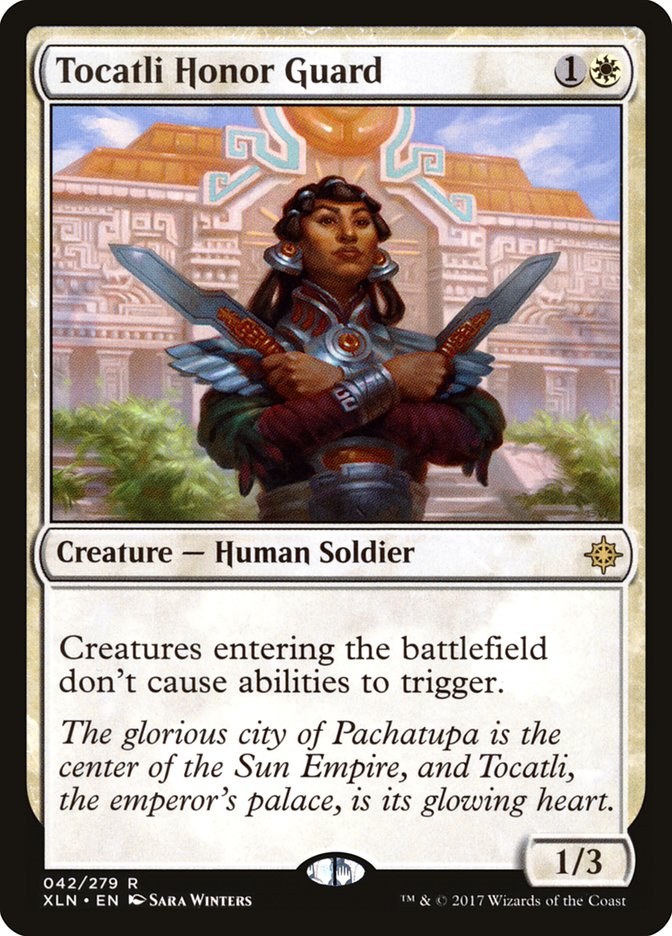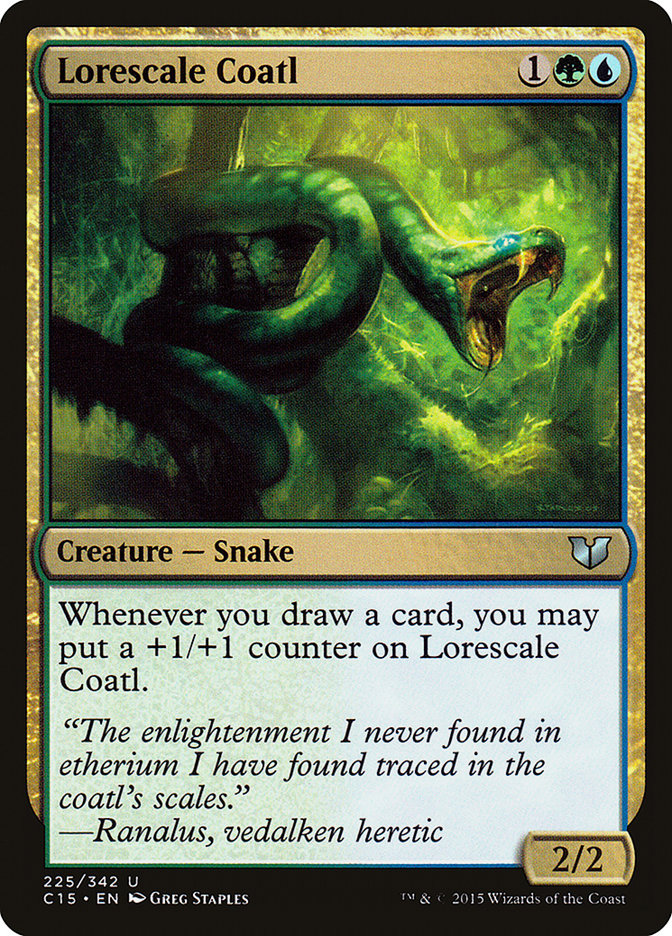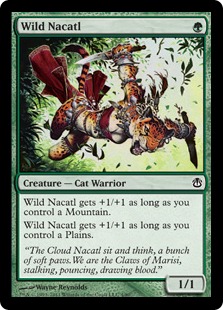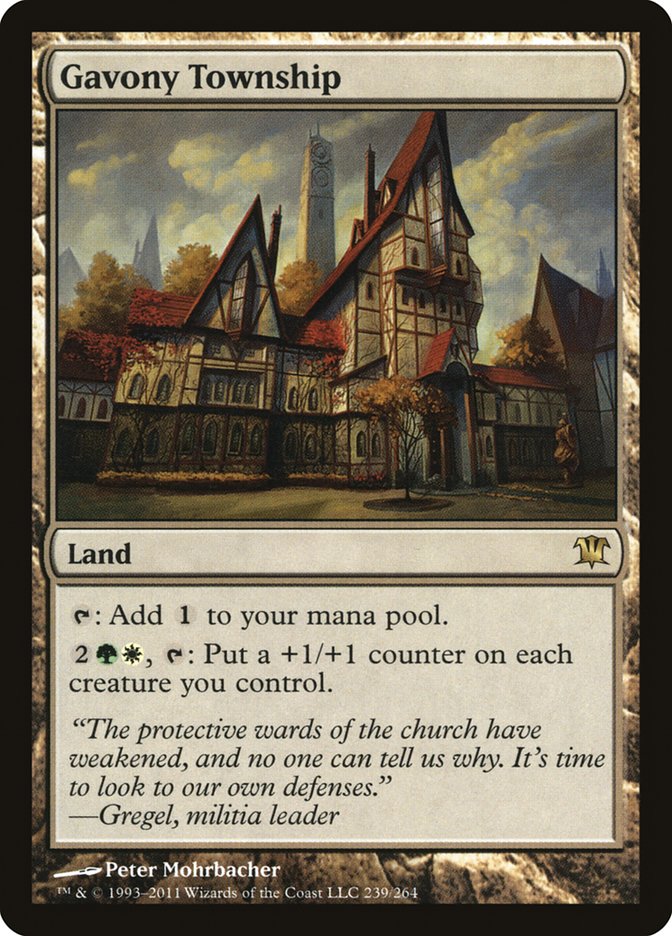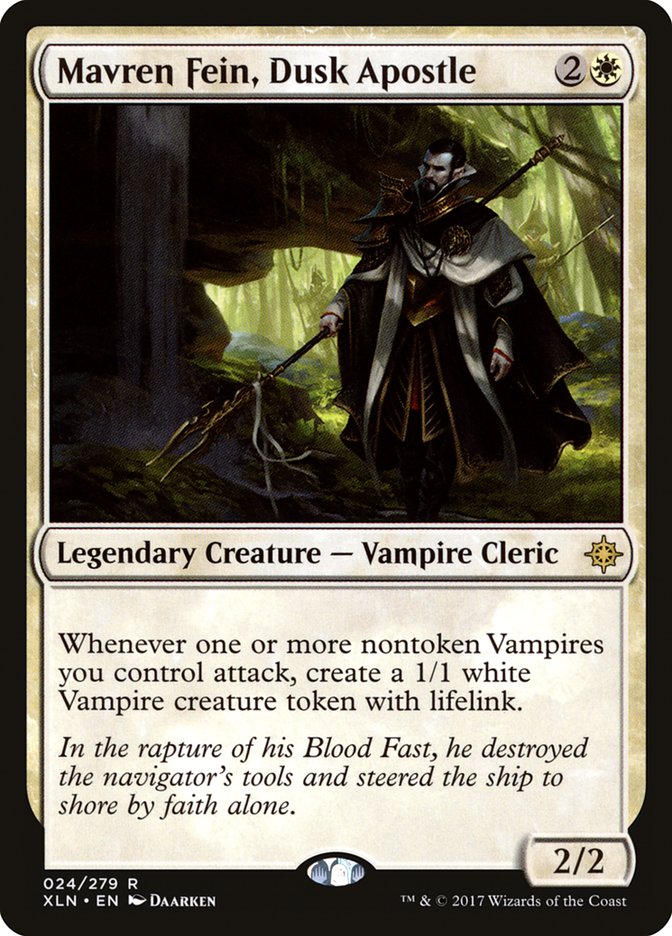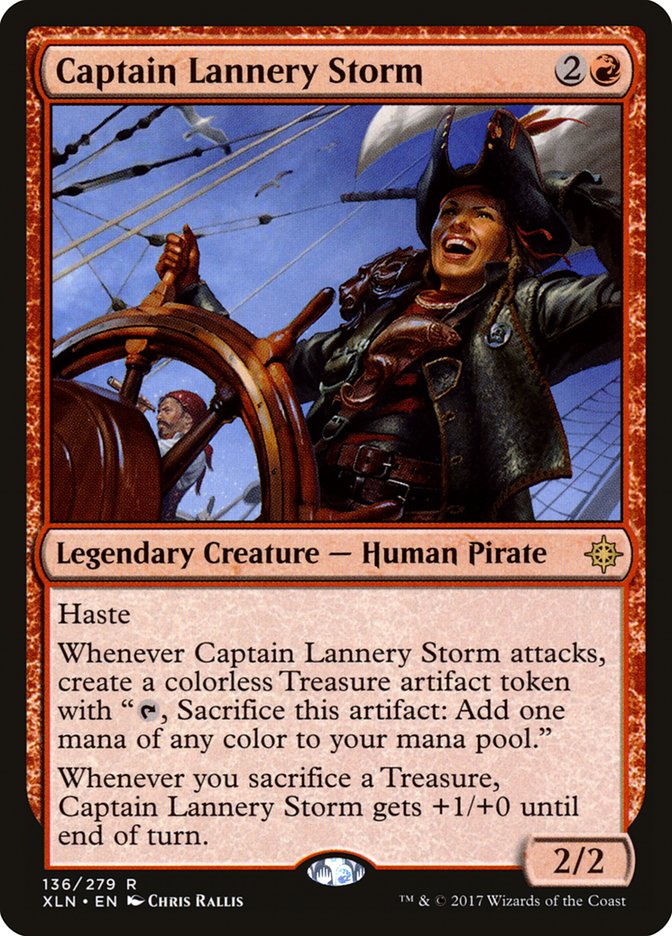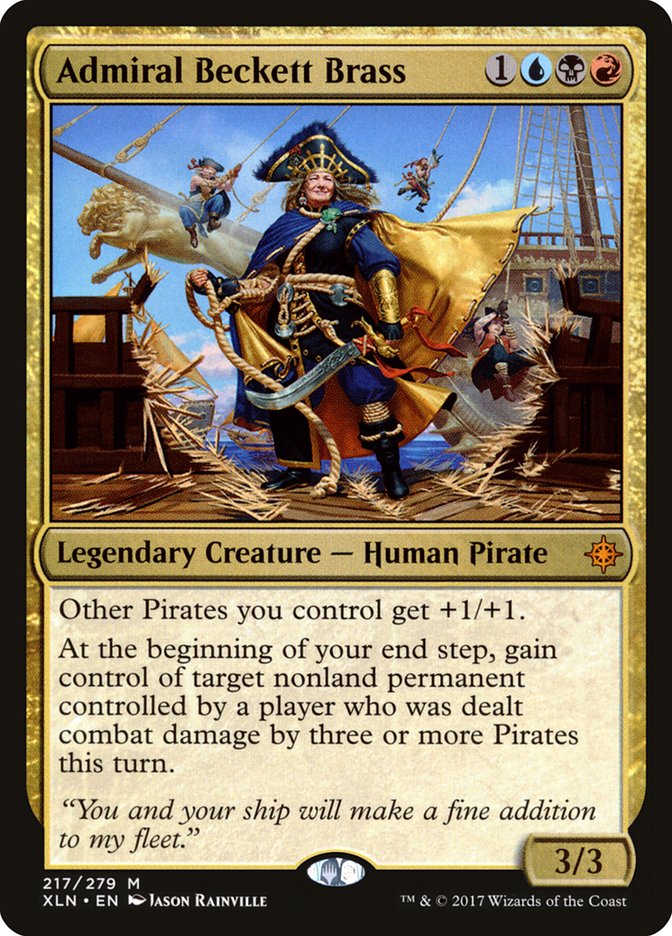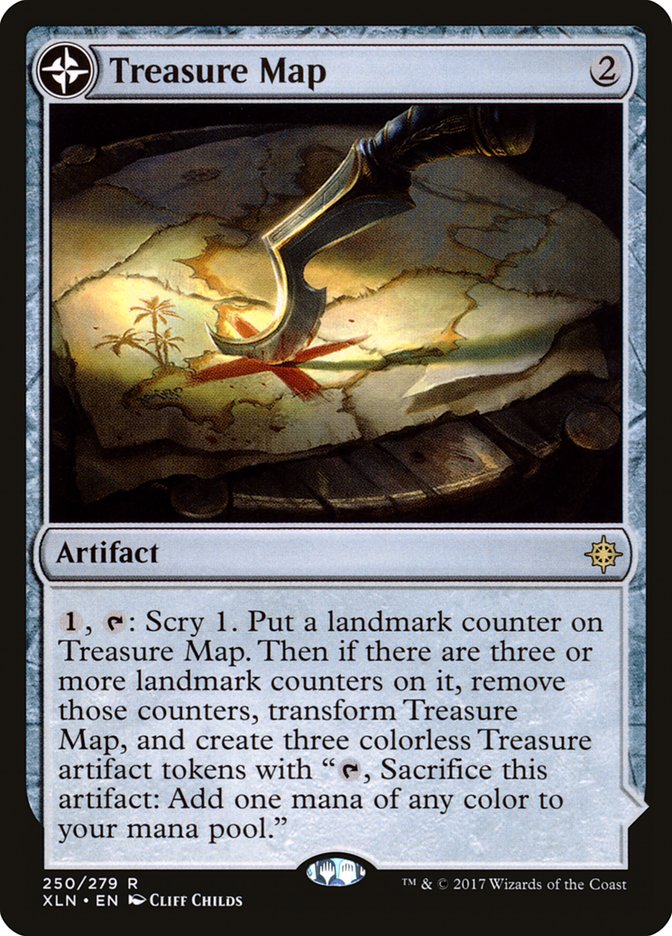First, a little mood music.
That line, “the language is leaving me,” has haunted me since the first time I heard it. I am monolingual (I don’t count four years of rusty schoolboy Latin) and a writer and editor besides; without English, I wouldn’t have a career or an effective way to communicate. So much of my identity, gone…talk about a nightmare!
Yet one of the beauties of English is that it borrows happily whatever word it might desire. Just look at these Magic card names, whose English-language versions borrow from Japanese, Icelandic, and Khoekhoe:
And wherever Magic takes inspiration from, it borrows the sounds of the local language. An Adam Lee article from 2011, “Phonemes: The Molecules Of Flavor,” breaks down how the Magic Creative team members and freelancers come up with the “sounds of the set,” whether Greek borrowings like Crypsis for a spell in Theros block or how “saheli,” respelled “Saheeli” (as in Saheeli Rai) to guide English-speakers toward the correct pronunciation, is the Hindi word for “friend.”
Why “Traverse” the Ulvenwald?
But the way Magic uses phonemes can create a different, sometimes unintended message. As Shadows over Innistrad block is poised to leave Standard, here’s a perhaps over-familiar card to competitive players:
I don’t know who named this card, but clearly they were going for a specific effect of sound. “Traverse” isn’t the first word that comes to most anyone’s mind when thinking of a word that means “to cross.” In fact, had the card been named simply “Cross the Ulvenwald,” few would’ve batted an eye.
So let’s think about “cross” versus “traverse.” “Cross” has deep roots in Old English, also called Anglo-Saxon. It’s the language of Beowulf, utterly alien on the page, and yet, when listened to, graced by ghosts of what is read and spoken today. (Looking through the history of the Lord’s Prayer, one of the few texts to be translated and re-translated throughout English’s history, “forgyf” and “forgive” aren’t so far apart.)
“Traverse,” by contrast, has a different flavor. It has the sound of Latin, the language of ancient Rome and at least one ATM at the Vatican, and indeed there is a connection: it comes from a medieval version of French, the language of the Normans who conquered England (William the Conqueror, Battle of Hastings, 1066…are those history classes coming back?). The interplay between Old English and the conquerors’ tongue eventually yielded the significantly French-influenced Middle English, the language of Geoffrey Chaucer and the Canterbury Tales.
On a phonemic level, “cross” has more in common with “Ulvenwald” (a made-up name that’s literally the German word for “forest” and the Danish word for “wolf” mashed together) than “traverse.” English is a Germanic language, whereas French is a Romance language. Interestingly, the word “forest” itself took the same path into English as “traverse.”
But there’s more to language than simple phonemes. To say “Cross the Ulvenwald” out loud is to find the ghost of rhythm (“CROSS the UL-ven-WALD”), but to say the card’s printed name (“tra-VERSE the UL-ven-WALD”) is to rattle off a line of iambic trimeter without thinking. The iamb shapes the rhythm of sonnets and Shakespeare‘s plays written in blank verse; iambic trimeter is the back half of common measure, heard everywhere from the hymn “Amazing Grace” (“that SAVED a WRETCH like ME”) to the chilling last lines of Emily Dickinson‘s poems (“and ZE-ro AT the BONE“).
Last but not least, there are the meanings of a word, its denotative dictionary definition and its connotations among speakers. “Cross” ascribes no particular difficulty to the action; one can cross the street or cross the Pacific Ocean. “Traverse,” on the other hand, adds another layer, implying a difficult crossing…and one can’t imagine going through one of the most notorious woods on Innistrad would be easy.
On the balance, English words of Anglo-Saxon origin have a lesser “burden of proof” for use than those deriving from Latin and its successors. They are on the whole shorter, less ponderous, less prone to pretentious misuse. But when a Latinate word is closer to intent, the Anglo-Saxon version is a poor substitute. (I could have written “inferior” in the prior sentence, but “poor” works just as well: the burden of proof in action.) And while “Traverse” presents a phonemic clash with “Ulvenwald,” the added meaning and improved rhythm make it the right word rather than “cross.”
ICKS-uh-lahn?
The official word from Wizards of the Coast is that the next Magic set (and the next Magic setting) is pronounced “ICKS-uh-lahn.” That’s interesting, because Ixalan, if pronounced according to the rules of Classical Nahuatl, would start with a sound more like “ish” rather than “icks.” Latin American Spanish is more of a toss-up; the “X” could sound as in the official pronunciation, or it could sound closer to the “H” in Mexico.
Let me state now that coming up with a setting name that a) can be trademarked and b) can be pronounced reasonably in languages as diverse as English, Italian, Russian, and Korean is hard. Often a compromise has to be made, and because the corporate interest in the trademark is paramount, the language has to give. From the Tarkir setting, while most languages had no trouble with Abzan (pronouncing each letter “a” like “ah”), native English speakers used to words like “abstract” and “abdomen” often tried to pronounce “Abzan” similarly, and while announcers may use the official pronunciation, I hear the other one frequently.
For most English speakers who don’t have much familiarity with Spanish or the rules of Nahuatl, “ICKS-uh-lahn” will roll right off the tongue. Those who try to “get it right,” though, will end up getting it wrong. I’m sure Wizards of the Coast weighed everything out – set names are among the decisions most heavily scrutinized before becoming final – but I can’t say I like the linguistic trap I fell into the first time.
You Stuck Your Quechua in My Nahuatl
But the linguistic borrowing in Ixalan doesn’t stop with Nahuatl. Check out this card:
The flavor text is long by Magic standards and heavy on the worldbuilding. Let me quote it out here:
“The glorious city of Pachatupa is the center of the Sun Empire, and Tocatli, the emperor’s palace, is its glowing heart.”
While the continent and plane of Ixalan have no known in-universe connection to Naya, they share phonemes and real-world inspirations, with the “tl” endings on “coatl” and “nacatl” the most obvious linguistic links.
Going back to Tocatli Honor Guard’s flavor text, the word that sticks out to me the most is “Pachatupa.” Maybe, when you read it, it seemed of a piece with Tocatli. To me, though, it didn’t sound the same. It reminded me of Pachacuti, a great Sapa Inca or ruler of the Inca. But the Inca were far from Nahuatl-speaking lands (it’s more than 4000 kilometers between the former Aztec and Inca capitals), and their language was Quechua.
Following up on a hunch, I found a Quechua-to-English dictionary online. According to it, “pacha” has many possible translations, including “time” and “space” but also “world” and “place.” While “tupa” in Quechua is a specialized term that doesn’t make much sense in connection with any of the “pacha” meanings, there’s a similar-sounding word that can mean “beautiful” or “rich.” That word? “Tupaq.” (Yes, like Tupac Shakur, the 1990s “Dear Mama” rapper. He was named for an eighteenth-century Peruvian rebel who had named himself for the last Sapa Inca.)
“Beautiful Land” or “Rich Land” certainly would be appropriate monikers for the gold-festooned Sun Empire, and dropping the final letter C or Q to avoid the “2Pac” jokes is the sort of move I can get behind (and would make myself, if dropped into a Wizards of the Coast creative team). The weird part about all this, though, is why there’s any reference to the Inca or their language in the first place.
As I mentioned above, the Nahuatl-speaking Aztec and Quechua-speaking Inca were thousands of kilometers apart, on different continents. If we were talking about, say, the Aztec and the Maya peoples, we’re getting closer, as both are broadly Mesoamerican. Even so, the as-the-crow-flies distances between Mexico City and Merida (near Chichen Itza) and between Rome and Athens are within 50 kilometers of each other, and yet Wizards of the Coast seems happy to entertain the idea of an ancient Roman plane to complement the Greek-inspired Theros while lumping all of Mesoamerica together. Ditto with Prussian-inspired Innistrad and the Central European feel of Ravnica.
When Magic goes this far afield, like the Roman-founding-myth-inspired Raised by Wolves or the Clash of the Titans “Let loose the [Norse mythological] Kraken!” meme reflected in Kraken of the Straits, there’s usually a bit of giving the audience what they want and expect mixed in.
But that’s not always the right thing to indulge. Here’s what the Aztec and Inca really had in common: over a period of about fifteen years, they were invaded by Spanish conquistadores and plundered. That they’ve become conflated into one mishmash “Mayincatec” stereotype is a historical and media screwjob. And while I appreciate the efforts Wizards Creative has made to create a positive Mesoamerican analog with Ixalan’s Sun Empire, I think they might’ve done better to leave the Incan imagery and phonemes out of it entirely.
European Oddballs
The Nahuatl-Quechua difference might seem subtle to someone who grew up speaking English, I’ll allow. But that’s not the only linguistic oddity to crop up in the setting.
When one thinks “conquistadores,” the home country of Spain comes to mind, as do Spanish names. U.S. residents and most English-speaking Europeans, even those who do not speak Spanish, will recognize the sounds, the looks of the page, of surnames like Mendoza or Trujillo or Cortes, of given names like Pablo or Enrique, Isabella or Rosita.
According to the most recent Magic Story podcast (transcribed here by the criminally underappreciated Cary Thomas Barkett, aka “Vronos“), the Vampire conquistadores of the Legion of Dusk have sailed to Ixalan from a continent called Torrezon. (Spanish phoneme radar: pinged!) And the first legendary Vampire from Ixalan the set is named…
…Mavren Fein? Huh.
“Mavren” sounds like a character from World of Warcraft, because it is. “Fein” sounds German, because it is.
The Magic Story podcast hand-waves this a bit by saying the Legion of Dusk conquered a whole continent, so conceivably there could be some German-analogue Vampires in the Legion, but it’s still a jarring contrast to the conquistador theme.
And then, of course, if Torrezon is Ixalan’s version of Europe, we know who lost out badly and became ancestors to Ixalan’s Pirates: the English.
If the setting’s right, even names in English can stick out as an oddity within a setting. From what we’ve seen of Ixalan, that manages to be the case. Perhaps there are other (non-Vraska) legendary Pirates yet to be seen with different names, but for now, the trend is thoroughly English (and thoroughly “last name as a woman’s first name,” but that’s probably more a function of the small sample size than anything else).
The Pirates sounding specifically English with surnames like “Storm” and “Brass” (Spanish versions might be “Tempestad” and “Laton”) throws me out of the conquistador era because the earliest piracy in the Caribbean was a response to the Spanish looting of its Latin American conquests, and it was by French rather than English plunderers; English piracy didn’t really become a thing until a generation later. Even then it was in an early phase, although Sir Walter Raleigh notably went on a quest for El Dorado in 1595 during the Anglo-Spanish War.
English piracy in the Caribbean in the sense that has become embedded in popular culture (Robinson Crusoe, Pirates of the Caribbean, Black Sails, and so on) dates to the second half of the seventeenth century and the start of the eighteenth, more than a century after the time of the conquistadores.
I’m a massive trivia hound, and even I had to look up the Raleigh expedition. Also, unlike the popular conflation of Incan cultural aspects with Aztec, someone hearing “piracy in the Caribbean” and thinking “1700” for the year is spot-on.
All these little details are so many smudges on Ixalan’s high-concept gloss of “Aztecs-versus-conquistadores … with Dinosaurs!” The English Pirate elements pull me away from that time; the Incan elements pull me away from that place. Maybe the rest of the cards will connect these outliers to the bulk of the setting, but for now, Ixalan’s words have me a little worried for its world.





